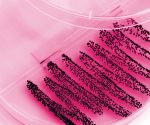Several things can affect the accuracy or results of a Pap test, which is a laboratory exam that screens for cervical cancer. Cells from the cervix are collected during a pelvic exam and then sent to the lab for analysis. Your doctor may suggest that you keep the following points in mind in preparing for your pelvic exam to help ensure your Pap test results are accurate.
- Do not schedule your pelvic exam during a time you will be menstruating. Blood on the Pap smear may make test results less accurate. The best time is usually 10-20 days after the first day of your period.
- The day before your Pap test, do not take a bath, use tampons or douche.
- Do not have intercourse within 24 hours of your pelvic exam.
- Bring any medicines that you take regularly to your appointment to share with your medical provider. Birth control pills and other medicines that contain estrogen or progestin may affect Pap test results.
- Tell your doctor if you are pregnant or if you have had abnormal Pap test results in the past.
- Do not use products in your vagina including medicines or foam, cream or jelly birth control within two days of your Pap test.
Pap tests are generally recommended beginning when a woman is 21 years old and every three years up to age 30. After that, women may have them five years up to age 64, if they also have HPV testing. From age 65 you may not need to take Pap tests anymore. But talk to your doctor about what is best for you.
Continue Learning about Gynecology
Important: This content reflects information from various individuals and organizations and may offer alternative or opposing points of view. It should not be used for medical advice, diagnosis or treatment. As always, you should consult with your healthcare provider about your specific health needs.





